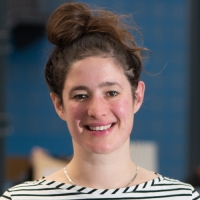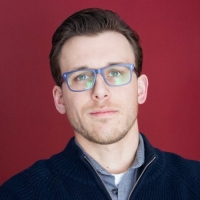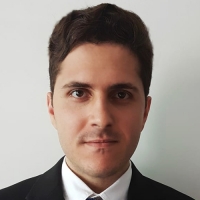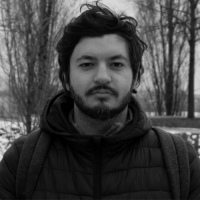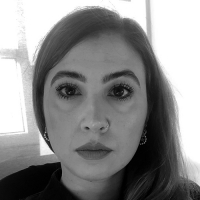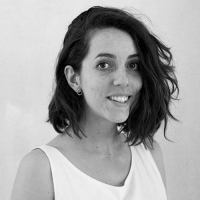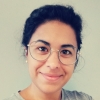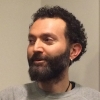Search Presenters
Information
search a presenter by name or topics to see the title/s of her/his presentation/s, and directly access to either the presentation blog space or placement into the general program.
Presenters
Dr. Ivan Alvarez is the CEO of the company Emotional Data (ED). He is a lecturer in tourist facility design at CETT (School of Tourism, Hospitality and Gastronomy) and Barcelona University (UB). He received his Ph.D. in 2013 and carried out a postdoctoral project as Marie Curie Researcher (European Research Area) at Cornell University in the Department of Design and Environment Analysis from 2014 to 2016.
His work is focused on emotional, technological and environmental design for the tourism industry. At Cornell University he led implementation instruments in tourism architecture design toward more innovative and integrated models.
He conducted a major research project from 2010 to 2012, in which was promoted by the Government of Sardinia and the European Union, working on an urban tourism model.
In 2017, as data analytics researcher, he collaborated with InAtlas-BIG DATA, to design urban strategies based on Open Data. He has been awarded national and international prizes in contests involving hotels and tourist complexes. He was a finalist (2007) in a contest for a Hotel in Barcelona, received 1st Prize (2009) in the contest for the rehabilitation of the Playa del Águila tourist complex in Canary, among others.
Oral Presentations:
Indoor Environmental Quality design of hotels in the United States and Europe
Additional Info
- Affiliation CETT-UB, School of Tourism, Hospitality and Gastronomy
A doctoral design researcher at The Oslo school of Architecture and Design, currently exploring the intersection of climate change, long term sustainability, speculative futures and Industrial Design. As a "multi-modal" industrial designer from India, I am exploring sustainability through a way of imagining future visions that go beyond what business as usual is today, towards more “long term futures and sustainability”. This theme directly deals with how designers can imagine and create the future we wish to see in the here and now by envisioning radically sustainable futures through film, storytelling and designed artefacts for future foresight.
Oral Presentations:
Critical Futures Today: Back-casting speculative product design towards long-term sustainability
Additional Info
- Affiliation The Oslo School of Architecture and Design
Jotte de Koning is an Assistant Professor of Design for Sustainability at Delft University of Technology (TUD). Her expertise lies in the field of participatory design, sustainability transitions and systems thinking. Her research is focused on co-creation processes between different actors in sustainability transitions. She explores how methods from the field of Participatory Design and approaches of Design thinking are relevant for different stakeholders in sustainability transitions.
She previously worked as a doctoral researcher on design, co-creation and sustainable consumption behaviour in Vietnam. As a postdoctoral researcher she worked on the cross-section of design and transition management with a specific focus on tools and participation in cities.
Jotte has published articles on sustainable consumption behaviour among the urban middle class of Vietnam; on the concept of co-creation and participatory design; and during her postdoctoral research she has published articles on participatory design and the complexity of sustainability transitions in cities.
Oral Presentations:
Design and Transition Management: Value of Synergy for Sustainability
Additional Info
- Affiliation es. Design Department, Politecnico di Milano
Kurtis Ulrich is a recent graduate from the Masters of Natural Resource Management program at the University of Manitoba’s Natural Resource Institute (NRI), in Winnipeg Manitoba and holds an undergraduate degree in political science. His thesis, “Prescribed Fire and Design: Two Biocultural Design Case Studies from Northwestern Ontario” explored wildfire management issues and the use of design thinking for assessing management outcomes and developing future wildfire management strategies. He is currently working as a research assistant for Dr. Iain Davidson-Hunt, of the NRI, on a biocultural design and innovation project looking at innovation in small scale food systems in Manitoba, Canada. In addition, Kurtis is the co-owner and creator of a wildfire risk and adaptation consulting firm, which aims to apply the principles of biocultural design in the context of wildfire risk reduction and adaption in communities in Canada’s boreal forest.
Oral Presentations:
Additional Info
- Affiliation University of Manitoba
My research interests focus on investigating how rationalistic understandings of technology associated with the modern worldview restrict design from contributing substantively to sustainability by viewing technologies as neutral, which de-emphasises their world building nature. I am especially interested in developing methods and tools that support design students to understand technologies in non-neutral terms and explore the implications of this understanding for developing more sustainable ways of living via the design of technological artefacts.
Oral Presentations:
The Technological Mediation of Sustainability: Design as a Mode of Inquiry
Additional Info
- Affiliation Lancaster University
M.Sc, Architect, Urban Planner and Landscape Architect based in Brasilia, Brazil, graduated in Sustainable Architecture from the Polytechnic University of Turin, Italy. He is interested in the future of architecture as shaped by innovation-driven technological achievements, as well as the classical language of architecture. He is the founder of Lucas Calixto Arquitetura and Co-founder of INTBAU Brazil - an organization aimed to protect and foster traditional expressions of architecture embedded with historical significance.
Oral Presentations:
Exploring Fog Harvesting in Europe: Characteristics and Guidelines For A Sustainable City Model
Additional Info
- Affiliation .
The development model based on industrial production was responsible in two centuries for a significant reduction of many non-renewable resources. The idea that design as a field of knowledge has been a notable participant in this context has existed since the 1970s and has been corroborated by leading authors ever since, such as Victor Papanek, Gui Bonsiepe, Ezio Manzini, Michael Braungart and Janis Birkeland. Going with this concept, studies from the International Council of Societies of Industrial Design (ICSID) indicate that about 80% of the environmental cost of a product, service or system is generated in the design phase. This makes clear the importance of inserting this theme in the field of design, both in the academic and professional spheres.
Based on this, the research aims to understand how it is the approach of teaching in design for sustainability in Brazilian undergraduate courses. From a set of data obtained in public official documents from the Institutes of Higher Education (HEI) researched in Brazil and Europe, in addition to a bibliographical survey of relevant contemporary publications, this paper uses content analysis tools to map the recurrence and articulation between documents. The results present the state of the art of design education for sustainability in Brazil in comparison to European educational institutions and the scientific community agenda.
Oral Presentations:
Design for sustainability. State of the art in Brazilian undergraduate courses
Additional Info
- Affiliation University of Sao Paulo (USP)
Maria Canepa(Genoa, 1985), architect, PhD (2016) in Architecture (field: architecture technology) at Department Architecture and Design, University of Genoa, Italy. She graduated with honours from the Faculty of Architecture of Genoa in 2011. since 2011 she carries out research and collaborates with Prof. Magliocco in teaching. Since 2012 she has been working as an architect in collaboration with Axèstudio and she is secretary of the Provincial Section of Genoa of the “Istituto Nazionale di Bioarchitettura”. Author for Mimesis Edizioni.
Oral Presentations:
Artistic craftsmanship vs degradation risk of historical areas
Additional Info
- Affiliation .
Phd candidate and teaching assistant, she is a Service Designer that focuses her research and activity on Co-Design processes, Participatory Design, Design Thinking and Scenario Building. She is member of POLIMI DESIS Lab within the Department of Design of Politecnico di Milano where she is developing her doctoral research on the impact of Design Thinking within the private sector, specifically focusing on relevant features for the human resource departments. She is active in engaging the Service Design community in a discussion about the discipline therefore she co-organizes the Service Design Drinks Milan.
Oral Presentations:
Additional Info
- Affiliation Design Department, Politecnico di Milano
More...
Nina Costa is a researcher and designer with a background in product design and a PhD in leaders for technological industries, MIT-Portugal program. She undertook her initial studies at the University of Aveiro, and continued at the Faculty of Engineering of the University of Porto (FEUP), Portugal. Her work focused on integrating Product-Service Systems (PSS) design approach with Service Design, supporting multidisciplinary teams and companies to co-create value with their customers and design more integrated solutions. Throughout her career, she worked in close collaboration with manufacturing and service industry, in particular, in the energy and laboratory sectors. Additionally she participated and published her work in conferences including IPDMC, QUIS and ServDes, and published an article in a leading international scientific journal in the field of Design (Design Studies). She was also invited to present her work at FEUP on multiple occasions and at the Massachusetts Institute of Technology (MIT). She contributed to the management of the Service Design for Innovation Network (SDIN) H2020 project, and is currently developing her research at the intersection of user experience and circular economy in Aveiro.
Oral Presentations:
#ECOTERACY, designing an info inclusive and universal language of sustainability
Additional Info
- Affiliation .
I am a Master’s student in Creative Sustainability Programme, Department of Design of Aalto University in Helsinki, Finland. Born raised in Western Kazakhstan, I lived, studied and worked in Canada, Finland, and Italy.
As a multidisciplinary designer, over the years I worked on various interior, exhibition, graphic, and service-system design projects. However, my career and personal interests shifted from built environment design towards sustainability challenges and systems thinking. I am curious about people, cultures and functional aesthetics.
Oral Presentations:
Additional Info
- Affiliation .
I studied and worked in Netherlands and Istanbul, TR. After early engineering years and all problem solving activity in information technologies, my path changed into industrial product design by providing a Msc. thesis on semantics and user perception in I.T.U. (Istanbul Technical University)
Later, I completed MSc. Integrated product design with a scholarship at TU Delft. International design practice followed by company collaborations and freelance projects. My work embraces design strategy and product & brand identity, ecodesign & sustainability, material selection and light-weight structures.
I’m teaching at department of Industrial Product Design in Beykent University and currently a Phd. candidate working on ecological materials and sustainability in Mimar Sinan University of Fine Arts.
Oral Presentations:
Additional Info
- Affiliation Mimar Sinan Fine Arts University
Pasqualina Sacco obtained the degree in Environmental Sciences, with chemical-physical and modeling specialization, at the Ca 'Foscari University of Venice and the Ph.D. in Agricultural Ecology at the University of Udine, with a research on assisted phytoextraction applied to soils contaminated by heavy metals. He has carried out post-graduate research as a visiting student, research fellow and teaching assistant at the Univesität für Bodenkultur in Vienna, the University of Udine and the University of Milan. Afterwards, he worked as a freelance consultant for universities and private companies in the use of ICT systems in agriculture and environment. He has participated in several national and European research projects, bringing his skills in systems analysis and modeling, system thinking, multicriteria analysis, design and prototyping of IT tools. He refined the skills of analyst and programmer, project manager and customer relationship (training and help desk) working for several years at a software development company. Since 2017 she is a scientific collaborator at Fraunhofer Italia, where she mainly deals with research and development, project management, innovation management, analysis, industry 4.0, precision agriculture and sustainability. She is coauthor of more than 50 printed works, presented in specialized magazines and congresses.
Oral Presentations:
Farm Ontology: a System Thinking approach for planning and monitoring farm activities
Additional Info
- Affiliation Fraunhofer Italia Research s.c.a.r.l.



